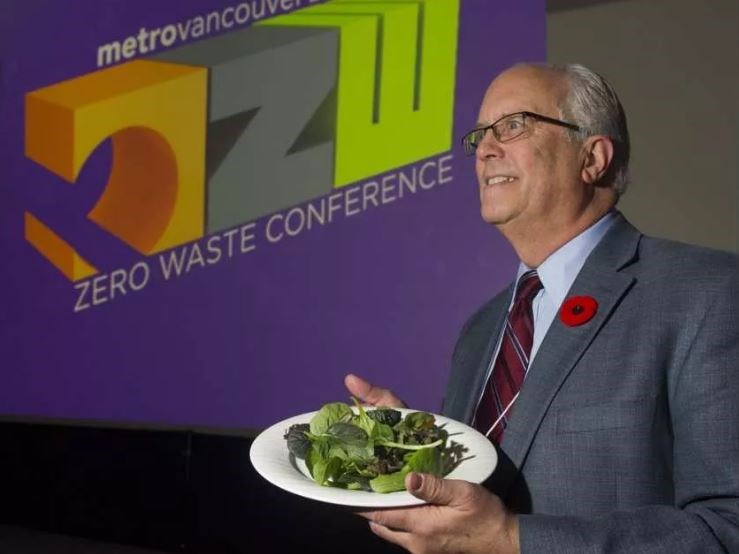Mayor Malcolm Brodie wants to know: “Why are we allowing good food to go to waste?” In Canada, almost 200,000 tonnes of food ends up in landfills each year, which accounts for at least $31 billion in lost revenue and about four per cent of the country’s greenhouse gas inventory when it decays.
The National Zero Waste Council wants to change that, and on Thursday announced that it has come up with a National Food Waste Reduction Strategy. The unveiling took place during the sixth annual Zero Waste Conference in Vancouver.
“I think we know that food waste is a growing problem,” said Brodie, a Metro Vancouver board director and chair of the National Zero Waste Council.
“Many Canadians are unable to access the food they need, yet perfectly nutritious food is being dumped in the garbage.”
According to the council, Canada is lagging behind the U.S. and Europe in terms of reducing food waste, and lacks a co-ordinated, collaborative approach to the issue. Many communities have undertaken their own efforts — such as Metro Vancouver’s organics disposal ban — but there has never been a national plan.
The multi-year strategy has three pillars: new government policies, innovation in technology and community infrastructure, and shifting consumer behaviour.
In the strategy, the council has suggested a national target of 50 per cent food waste reduction by 2030, which would align with the U.S. target. Another proposal is to introduce federal tax incentives to encourage businesses to donate excess safe and healthy food to charities instead of sending it to landfills — about 40 per cent of food waste happens through businesses or industrial food producers — and expand agricultural tax incentives for farmers to divert nutritious fresh food.
The Federation of Canadian Municipalities backed the tax incentive component in September and has called on the federal government to take action.
The council would also like to see clarification of “best before” and food expiry dates, to prevent consumer confusion, and implementation of local organics disposal bans. The strategy encourages investments in infrastructure to facilitate increased food donations to charities, such as new applications and virtual platforms.
Almost half of food waste happens at the consumer level, so public engagement is extremely important to the strategy, said Brodie. Developing a national food waste reduction campaign aimed at consumers is part of the strategy, along with educational materials to encourage separation of food scraps from garbage and charitable donations.
“It’s a matter of changing minds,” said Bob Long, who is a councillor for the Township of Langley and NZWC board member.
The strategy’s success depends on collaboration with the federal government, as well as other levels of government, business, industry, non-profit sectors and the public.
“We call on the federal government to move forward to adopt our strategy, which can yield significant economic, social and environmental benefits,” said Brock Macdonald, vice-chair of the National Zero Waste Council, in a news release.



